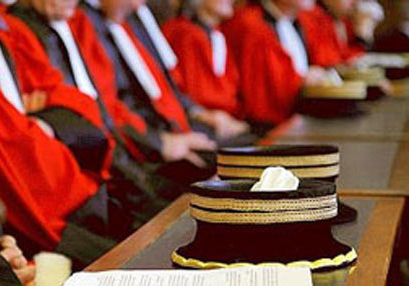In a memorandum published today, the ICJ is calling on the Tunisian Parliament to revise the draft law on the Constitutional Court with a view to ensuring its full compliance with international standards, in particular those on judicial independence.
The establishment of a truly independent Constitutional Court in Tunisia holds out the promise of strengthening the rule of law by enhancing protection of the rights guaranteed under the new Constitution, the ICJ notes.
But to achieve these aims, key aspects of the draft law must be changed, the Geneva-based organization stresses.
“Tunisian law makers must amend the draft law to provide the Court with the necessary guarantees of independence, broader functions and to ensure individuals easier access to the Court, whose function is to protect their rights under Tunisia’s new Constitution,” said Said Benarbia, Director of the ICJ Middle East and North Africa Programme.
The draft law must also be revised to ensure that all members of the Court are appointed because of their legal expertise and integrity, and that its composition includes women and reflects the diversity of the population of Tunisia, the ICJ says.
Ensuring that a body composed of at least a majority of judges will select the individuals to be appointed to the Court will bolster the Court’s independence.
“The judges of the Court should be selected in a clear and open process, led by judges, that ensures that the individuals appointed to sit on the Court are chosen for their skills and not on the basis of their political affiliations or loyalties,” Benarbia added.
Additional safeguards against the possibility of removal for unjustified reasons and which ensure fair disciplinary procedures are needed to ensure the guardians of the Constitution may rule without fear or favour, the ICJ adds.
The draft law should be amended so as to more clearly provide the Court with a role as a check on measures taken by the executive branch of government.
It is also crucial that provisions of the draft law be added to broaden the Court’s mandate and increase individuals’ access to it, the ICJ underlines.
For example, unnecessary restrictions, such as any specific accreditation for lawyers should be removed, and provisions authorizing the Court to accept third parties as interveners and amicus curiae to increase the basis of information on which the Court decides a case should be added.
Contact:
Theo Boutruche, Legal Adviser of the ICJ Middle East and North Africa Programme, t: +96 170 888 961, e: theo.boutruche(a)icj.org
Tunisia-Draft Law Const Court-Advocacy-Analysis Brief-2015-ENG (full memo in PDF, English)
Tunisia-Draft Law Const Ct-News-Press releases-2015-ARA (full press release in PDF, Arabic)
Tunisia-Draft Law Const Court-Advocacy-Analysis Brief-2015-ARA (full memo in PDF, Arabic)

